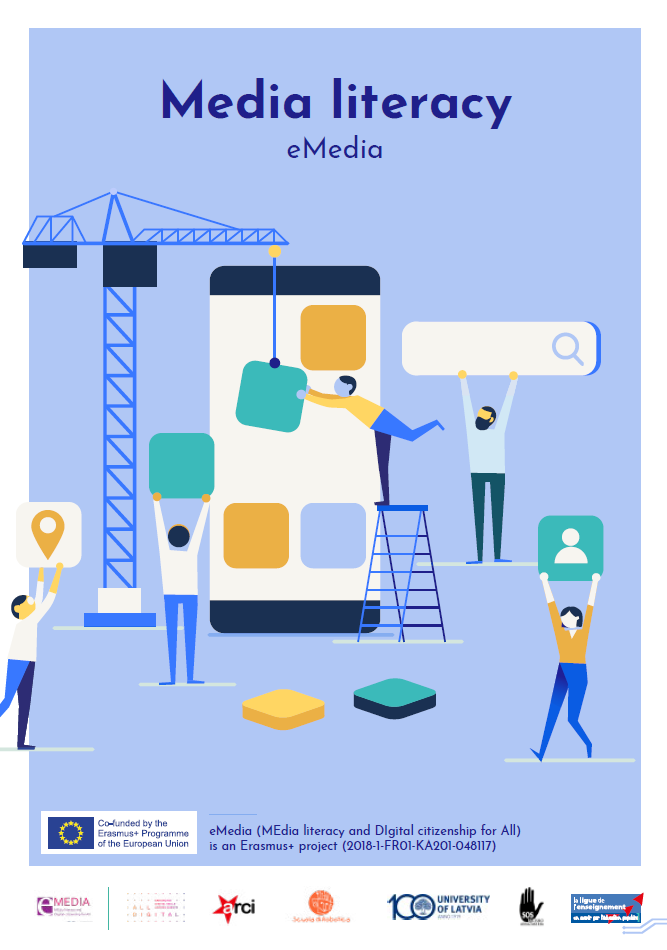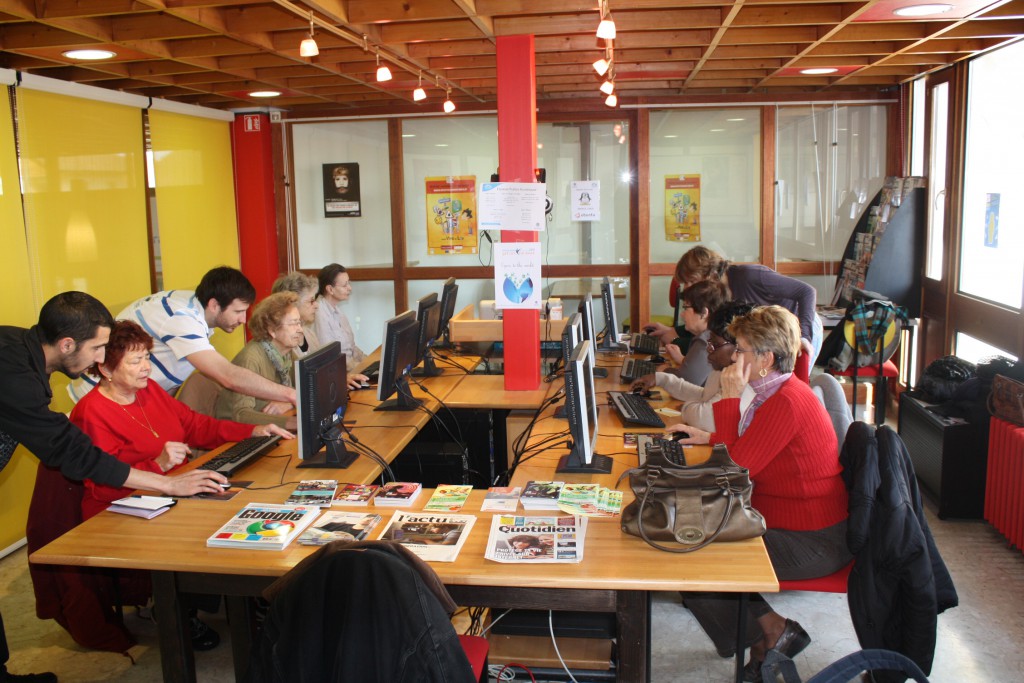
26 Mar Handbook on Media Literacy
26 Mar, 2021
The eMedia: Media Literacy and Digital Citizenship for All project aims to promote education for all by producing educational guidelines (handbooks) related to digital practices. These handbooks support possibilities for a new and innovative way of teaching different subjects at school. They address educators who are interested in developing their digital competence and improving their understanding of educational robotics as a pedagogical approach in formal or non-formal education.
The handbooks are devoted to three aspects of digital competence:
- Educational robotics: to develop computational thinking with hands-on activities.
- Media literacy: to understand the power and the risks of online social media.
- Online Expression: to promote a more responsible use of social media, blogs, web radios and web TVs.
In addition to the printed manuals, their electronic versions are also available, with additional information on the topic in question. Free online courses have been created on the Moodle platform.
The handbook on Media Literacy gives an insight on the influence of media on young people development and the role of of new information technology in manipulating reality. It is intended to be used as a guideline and source for inspiration for teachers who are willing to expand their knowledge thanks to the practical examples that the handbook provides in order to deal with media literacy in class. The handbook:
- explains in brief the influence of media on young people development
- gives technical considerations on what media literacy is
- provides an overview of the legislative frame, licenses and media ownership
- gives practical examples to deal with media literacy in class.
Check out the handbook on Media Literacy in the other languages available:






